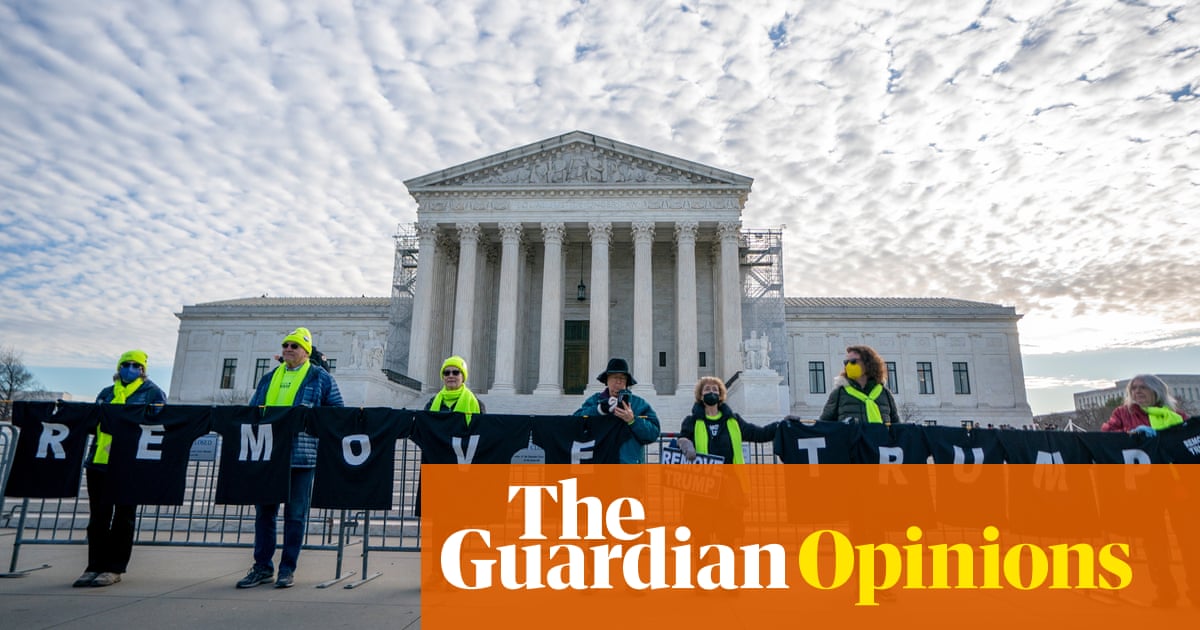The justices, wanting to restore Trump to the ballot, didn’t address the underlying question of if he incited an insurrection
Elena Kagan once referred to Jonathan Mitchell sarcastically as “some genius”. That was in oral arguments surrounding SB8, the bounty-hunter abortion ban that Texas succeeded in passing before the overturn of Roe v Wade, which Mitchell wrote, pioneering a cockamamie scheme for evading judicial review.
Mitchell, a far-right lawyer currently vying for a spot in the second Trump administration, is a fan of this kind of bald, legal bad faith: you can’t quite call him duplicitous, because he never quite pretends that the law really leads him to the conclusions he’d like to reach. He’s more about coming up with novel legal schemes to get to his desired outcome and trusting that the federal judiciary, captured as it is by Federalist Society acolytes and wingnut cranks, will go along with him because they share his political proclivities.
That’s what worked for him with SB8: the supreme court allowed Texas’s abortion ban to go into effect long before Dobbs: not because Mitchell made a convincing argument, but because he offered them an opportunity to do what they wanted to do anyway.
Something similar happened in Thursday’s oral arguments in Trump v Anderson, a question about whether Donald Trump is disqualified from holding federal office under section three of the 14th amendment.



Republicans have already tried once. Thankfully, SCOTUS shot them down.
https://www.brennancenter.org/our-work/research-reports/independent-state-legislature-theory-explained
No, that blatantly-corrupt wishful thinking bullshit isn’t what I’m talking about at all.
For reference, here’s what your article says “independent state legislature theory” is:
What I’m saying is not that state legislatures could ignore the results of the state’s popular vote and send fraudulent electors or whatever (i.e. the second-paragraph case), but that a state could decide to repeal its popular vote in the legitimate way (i.e. the first-paragraph case) if it wanted.
TL;DR: all I’m saying is that the way a state chooses Electors is a matter of its own state law, not Federal law. I’m not saying a state legislature doesn’t have to follow its own state laws!
That’s a different matter and thankfully they made the right decision there. The question was whether or not a state legislature has the sole power to decide election rules AND they supercede the governor and state constitution.